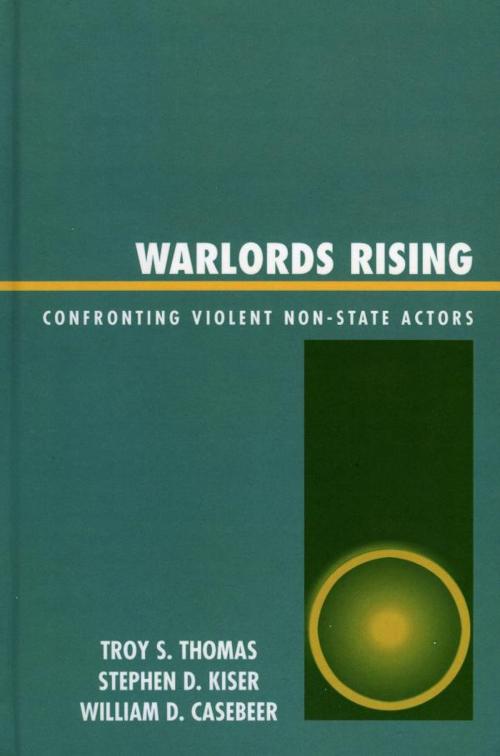Warlords Rising
Confronting Violent Non-State Actors
Nonfiction, Social & Cultural Studies, Political Science, International, International Security, International Relations| Author: | Troy S. Thomas, Stephen D. Kiser, William D. Casebeer | ISBN: | 9780739162361 |
| Publisher: | Lexington Books | Publication: | August 9, 2005 |
| Imprint: | Lexington Books | Language: | English |
| Author: | Troy S. Thomas, Stephen D. Kiser, William D. Casebeer |
| ISBN: | 9780739162361 |
| Publisher: | Lexington Books |
| Publication: | August 9, 2005 |
| Imprint: | Lexington Books |
| Language: | English |
Violent non-state actors (VNSA) often serve a destabilizing role in nearly every humanitarian and political crisis faced by the international community. As non-state armed groups gain greater access to resources and networks through global interconnectivity, they have come to dominate the terrain of illegal trade in drugs, guns, and humans. Warlords Rising arms those confronting the mounting challenge by delivering an innovative, interdisciplinary framework of analysis designed to improve understanding of non-state adversaries in order to affect their development and performance. Examining the utility of traditional theories of deterrence and warfighting in light of the insight gained through this interdisciplinary approach, the authors elevate the powerful role of environmental shaping in group development, recast deterrence in ecological terms, and lay out a strategy to defeat non-state adversaries if necessary. Whether the goal is preventing, coercing, or conquering, the framework of analysis presented here is designed to be universal, allowing for structured analysis across regions, types, and functions of non-state actors and providing the decision maker and policy maker witha variety of modes and methods of intervention.
Violent non-state actors (VNSA) often serve a destabilizing role in nearly every humanitarian and political crisis faced by the international community. As non-state armed groups gain greater access to resources and networks through global interconnectivity, they have come to dominate the terrain of illegal trade in drugs, guns, and humans. Warlords Rising arms those confronting the mounting challenge by delivering an innovative, interdisciplinary framework of analysis designed to improve understanding of non-state adversaries in order to affect their development and performance. Examining the utility of traditional theories of deterrence and warfighting in light of the insight gained through this interdisciplinary approach, the authors elevate the powerful role of environmental shaping in group development, recast deterrence in ecological terms, and lay out a strategy to defeat non-state adversaries if necessary. Whether the goal is preventing, coercing, or conquering, the framework of analysis presented here is designed to be universal, allowing for structured analysis across regions, types, and functions of non-state actors and providing the decision maker and policy maker witha variety of modes and methods of intervention.















